Over the past decade, Jemar Tisby’s life has largely been shaped by two forces: the Bible, and the deaths of young Black men, often at the hands of law enforcement.
About a decade ago, Tisby, then a seminary student in Jackson, Mississippi, helped start a new group called the Reformed African American Network — an offshoot of the “Young, Restless, and Reformed” movement that had spread like wildfire among evangelical Christians in the first decade of the 21st century.
The group hoped to write about racial reconciliation from the viewpoint of Reformed theology, the ideas most closely associated with the ideas of John Calvin and popularized at the time by preachers and authors such as John Piper. But amid this resurgence of Reformed thought, there were few resources to be had on race issues.
Then, in 2012 in Florida, Trayvon Martin, a Black teen, was killed by the neighborhood watch coordinator of a gated community. All of a sudden, people in the movement were listening.
At the time, Tisby said in an interview, he and others raised their hands and said they had something to offer. The mostly white leaders of the Reformed movement, he said, welcomed them. “I believed them,” he said. “I thought, we are here, they must want us here.”
Your tax-deductible gift helps our journalists report the truth and hold Christian leaders and organizations accountable. Give a gift of $30 or more to The Roys Report this month, and you will receive a copy of “Hurt and Healed by the Church” by Ryan George. To donate, haga clic aquí.
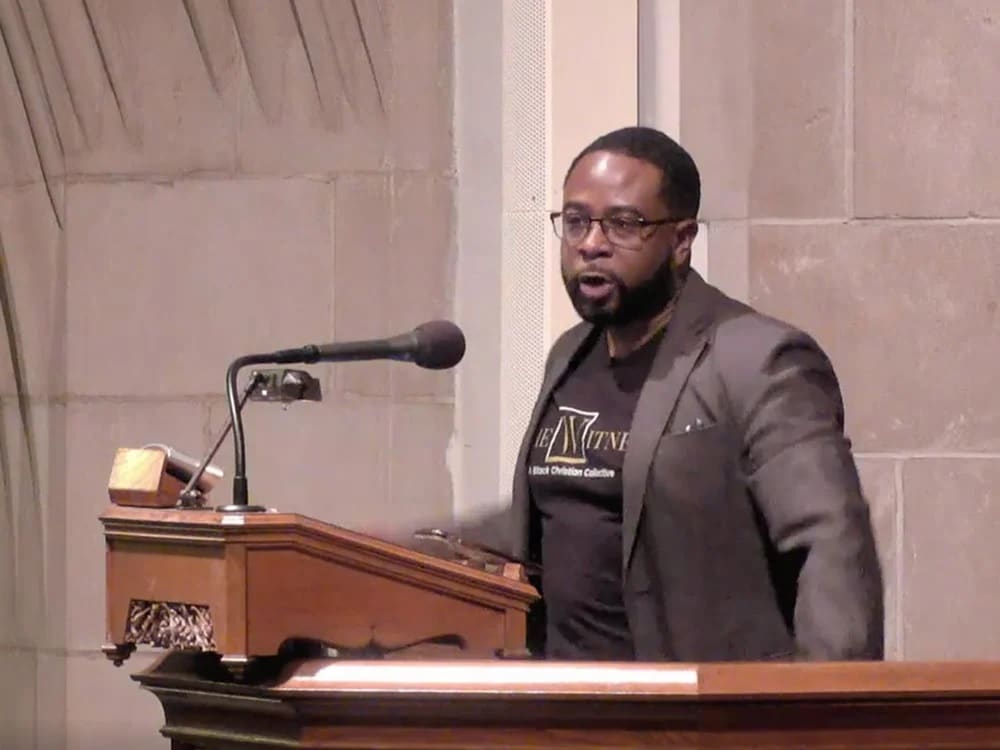
Over the next few years, Tisby, a former pastor turned history professor, became a leading voice on race among evangelicals through his writing and as co-host of “Pass the Mic,” a popular podcast.
He wrote op-eds en race y fe for The Washington Post and published the bestselling “The Color of Compromise,” which details the long history of racism in American Christianity. “How to Fight Racism,” a 2021 follow-up, was named Faith and Culture Book of the Year by the Evangelical Christian Publishers Association.
But Tisby’s success has since collided with conservative concerns about “wokeness” — a byword that encapsulates liberal critiques of systemic racism, America’s racial history and other social justice themes.
In recent months two college English professors at Christian colleges — one in Florida, the other in Indiana — have been dismissed for allegedly talking too much about race in their classes. In both cases, critics pointed to the appearance of Tisby’s work on class syllabi to claim the professors were undermining their students’ Christian faith.
“I’ve become, for the far right, a symbol of everything that’s wrong with how people who they call the left are approaching race,” Tisby told media.
Los "despertó la guerra” playing out in school boards, on college campuses and in church pews has been driven by activists like Christopher Rufo and by conservative evangelical authors and preachers who warn that wokeness and academic notions such as critical race theory are heresy.
As a result, evangelical pastors who were once abierto about the need to confront racism have gone silent, or in some cases, been driven from the movement altogether.
Some black Christians — including Tisby and his colleagues at The Witness, as the former Reformed African American Network is now known, have izquierda the evangelical world, sometimes quietly and other times loudly.
Some, like Tisby, have found it harder to leave — finding their ties to the evangelical world difficult to unwind even when they are told they are not wanted. Last year, the board of Grove City College, a Christian school in Pennsylvania, se disculpó for a 2020 sermon Tisby gave at a campus chapel session after an petición en línea accused him of promoting critical race theory.
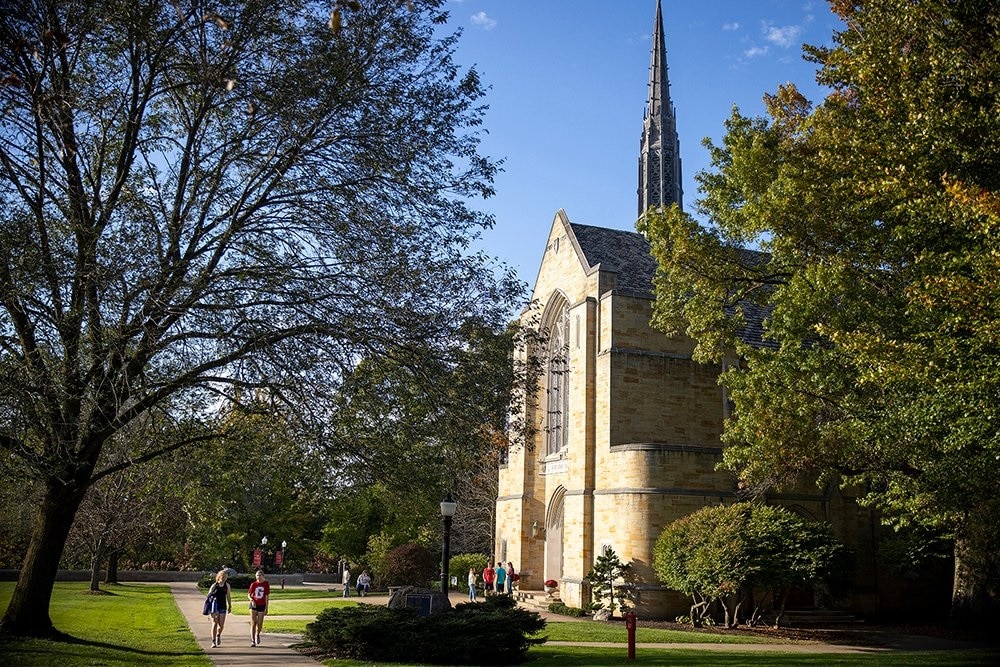
White evangelical institutions have recognized a need in recent years to become more diverse in order to prosper as the country’s demographics change. But their donors often bridle as schools and churches change, causing a backlash that drives away people of color.
Anthea Butler, religious studies professor at the University of Pennsylvania and author of “White Evangelical Racism,” a 2021 book about the racial divides of the evangelical movement, said evangelicals have a long history of welcoming Christians of color into their movement and then ousting them if they ask too many questions about race.
She said college leaders, like those behind the report at Grove City, or other Christian leaders who have denounced Tisby want to make an example of him as a warning to others.
“They want to punish him,” she said.
A native of Waukegan, Illinois, Tisby found Christianity while in high school when a friend invited him to a church youth group meeting. Attending the University of Notre Dame, he began to think about a call to ministry. In South Bend he also discovered Calvinist theology after a friend sent him a copy of Piper’s 1986 book “Desiring God.”
After graduating in 2002 and a year working for Notre Dame’s campus ministries, he joined Teach for America and was sent to teach sixth graders in impoverished Phillips County, Arkansas, in the Mississippi Delta.
The experience changed the direction of his life.
“This is cotton country — the land of slavery and sharecropping,” said Tisby. “You can see it in the landscape, you can see it in the generational poverty.”
The predominantly Black community was marked by a lack of jobs, poor medical care, food deserts and a struggling school system.
“The thing that struck me was that there are churches on every corner,” said Tisby. “Not only were they racially divided, it also didn’t seem like they were having much impact in the community. That’s where I started thinking about the relationship between faith and justice.”
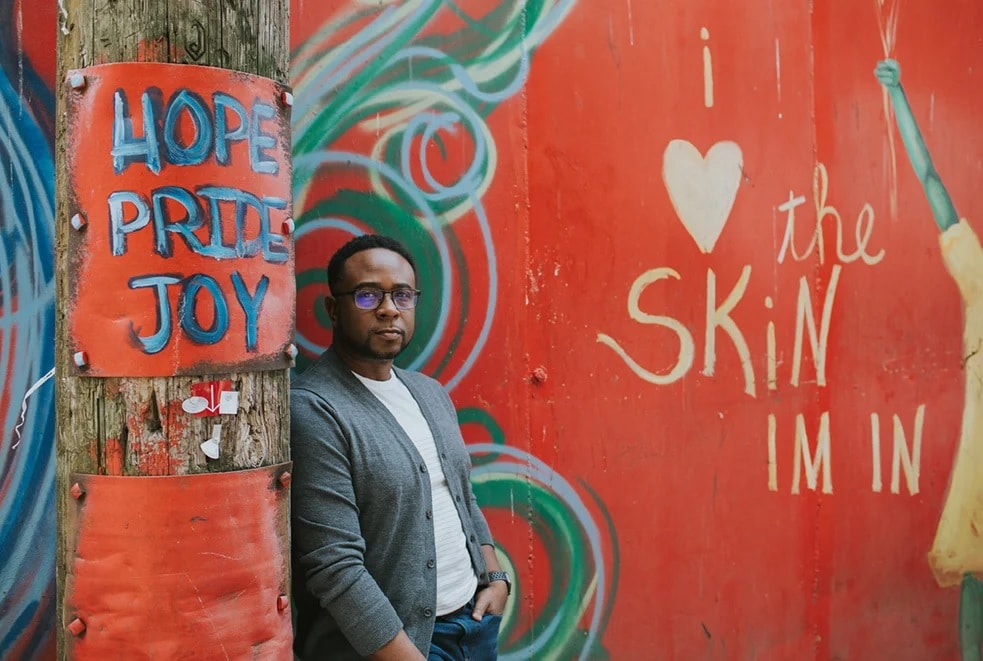
After four years at the school, he took a year off to study at Reformed Theological Seminary in Orlando, Florida, before returning, this time as a principal.
“I just felt God wasn’t done with me in the Delta,” he said.
He finished his divinity degree at a seminary in Jackson, Mississippi, working part time in the school’s admissions office. He was charged with helping recruit Black students and helped to start an African American leadership initiative.
Afterward, he enrolled at the University of Mississippi and earned a doctorate in history. He is ahora a professor at Simmons College of Kentucky, a historically Black school in Louisville.
The recent pushback against his work, he said, seems both familiar and surprising. As a historian, Tisby has traced the ways American Christians have tried to claim that the faith is colorblind. The love of Jesus, they maintain, should break down divides between people of different ethnicities.
But rarely, Tisby said, do Christians manage to overcome racial differences.
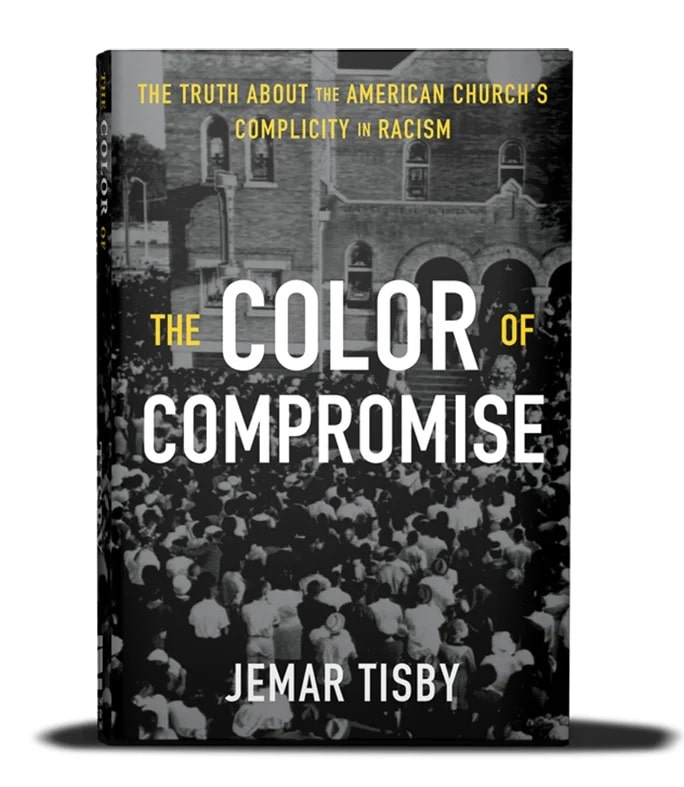
In “The Color of Compromise,” Tisby recounts how English settlers in Virginia faced a dilemma. In their homeland, Tisby writes, the custom was to free slaves who converted to Christianity. In 1667, the Virginia General Assembly decided that, no matter what the Christian faith taught, baptism would not make slaves free.
Tisby recounted some of that history in his 2020 chapel sermon at Grove City College. He had first been invited to speak in 2019 but his visit had been delayed by scheduling conflicts and complications of the COVID-19 pandemic.
School leaders later said they had invited him as a Christian writer who could help the school’s students grapple with racial reconciliation. Tisby, who had spent years in white evangelical spaces, felt he had a mensaje the students there could hear. “What I picked up on was, we’re willing to give you a hearing, but this is not what we typically do,” he said.
A year later a group of alumni and parents from Grove City lanzado a petition, claiming the school had been overrun by “wokeness” and CRT.
The petition cited Tisby’s speech as a sign the school had lost its way, but school leaders claimed it was Tisby who had changed course. “The Jemar Tisby that we thought we invited in 2019 is not the Jemar Tisby that we heard in 2020 or that we now read about,” they told a board committee.
Tisby traces white evangelicals’ suspicions of their Black counterparts to the 2014 protests in Ferguson, Missouri, that followed the shooting death of Michael Brown. The protests, which brought the Black Lives Matter movement to national attention, drove a wedge between Black and white Christians, he escribió in a 2019 Washington Post op-ed.
The split gained momentum in 2018 with a gathering in Memphis, Tennessee, to commemorate the 50el anniversary of the death of Martin Luther King Jr. Sponsored by the Ethics and Religious Liberty Commission of the Southern Baptist Convention and the Gospel Coalition, a prominent Reformed evangelical group, the event featured a host of prominent leaders, including Piper, Texas megachurch pastor Matt Chandler, Baptist pastor Charlie Dates, legendary Black pastor and community organizer John Perkins and Russell Moore, then president of ERLC.
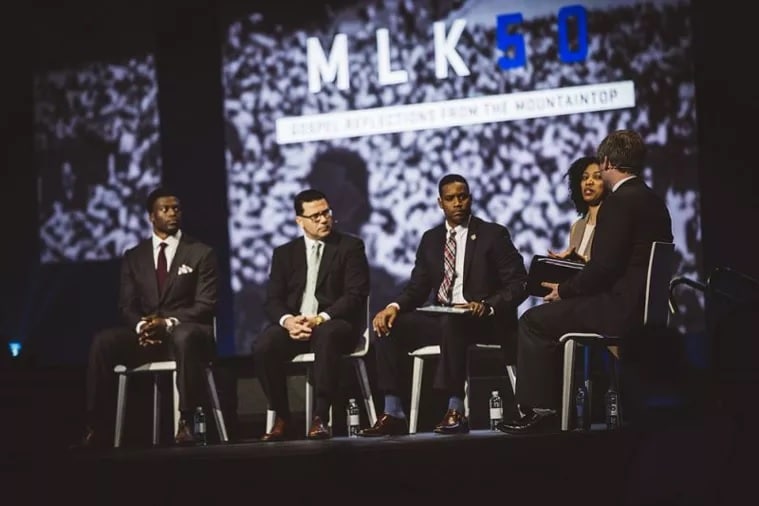
These preachers urged attendees to address the scourge of racism that stained the life of the church. Moore told attendees that enduring racism was leading younger Christians to question their faith.
“Why is it the case that we have, in church after church after church, young evangelical Christians who are having a crisis of faith?” said Moore, who has since left the SBC and is editor-in-chief of Christianity Today. “It is because they are wondering if we really believe what we preach and teach and sing all the time?”
That same week, an association of Southern Baptists in Georgia kicked a church out for racist actions against another SBC church. The Georgia Baptist Convention followed suit, as did the national Southern Baptist Convention annual meeting.
But in April of 2018, Tom Ascol, a conservative Southern Baptist pastor from Florida, criticized Thabiti Anyabwile, a well-known pastor in Washington, D.C., for escribiendo about the sin of racism. Ascol, who would later run for SBC president largely on his opposition to CRT, produced a documentary about what he called liberal drift in the denomination.
The pushback had begun. By that fall, a group of conservative pastors, many of them Calvinists, firmado “The Statement on Social Justice & the Gospel,” which responded to “questionable sociological, psychological, and political theories presently permeating our culture and making inroads into Christ’s church.”
In 2019, a resolución passed by the Southern Baptist Convention called CRT a “tool” to understand society and led to calls for the convention to denounce the resolution.
Those Southern Baptist debates over CRT long preceded debates in the general public. Ryan Burge, a political scientist, noted that Google searches for the term CRT were nearly nonexistent when Baptists started debating it. Only later did the debate spill out into the mainstream to be used by politicians, including Donald Trump, to rally supporters. It has since been equated with Marxism and other ideas anathema to conservatives.
Lerone Martin, associate professor of religious studies and director of the Martin Luther King Jr. Research and Education Institute at Stanford University, said that evangelicals have long found it easier to label Black leaders as leftists or Marxists rather than to deal with the reality of racism.
“That way, anything they dislike or oppose can be dismissed wholesale,” he said.
Tisby said he’s not an apologist for CRT or any ideology. He reads the Bible and history and tries to tell the truth, he said in an interview. That is his job as a Christian and as a historian. And he doesn’t think he’s all that special.
“I don’t think there’s anything in particular about my approach that is novel or different than what a lot of people have said for a long time.”
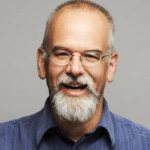 Bob Smietana es reportero nacional de Religion News Service.
Bob Smietana es reportero nacional de Religion News Service.




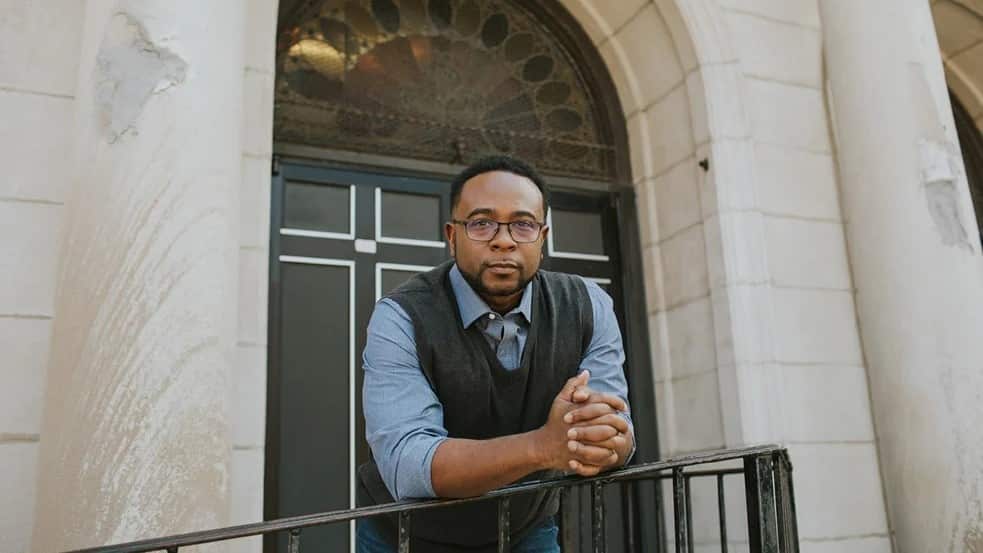

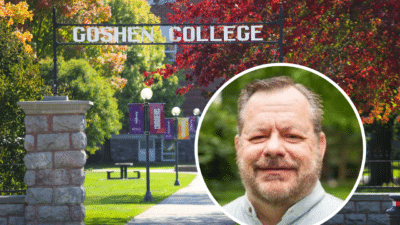



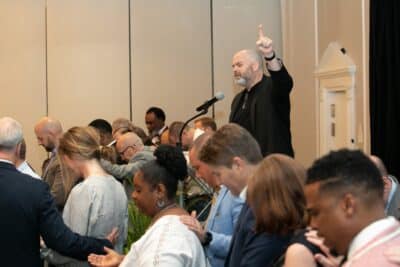


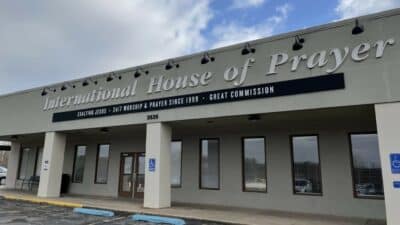






79 Respuestas
Very professional reporting, as always. Keep up the good work.
Professional reporting? We are introduced to Professor Tisby as a man shaped by the Bible- but the only mention made is in the closing paragraph- where he says he “reads” the Bible. The author makes assertions about white evangelical institutions looking to “prosper as the country’s demographics change”- but provides no evidence. Was anyone interviewed that Tisby or the author challenged? What evidence do Lerone Martin and Anthea Butler provide? At least the author included the links for Tom Ascol’s letter and the Statement on Social Justice & the Gospel. Sadly, yet another puff piece that presents but half the story..
Jim-
We read of how Tisby came to Christ, completed a Christian education, and entered ministry.
Do you not think the Bible shaped any of that? Or do you need more specifics?
The assertions about the white evangelical institutions looking to prosper as demographics change can be proven by simply reading the minutes and summaries of meetings at major denominational conventions (like the SBC and UMC).
There are links throughout the article to provide additional context and background on various events, resolutions and writings (likely to save space).
There are also other articles on this site about Tisby and his dissenters.
What is so upsetting here? The article told us how Tisby came to be a “bad” Black person among white Christians (if you’ve read my comments on other threads, you get the reference here).
Marin-
Every reader deserves to see the evidence. Tisby (and countless more) have attended these institutions. It doesn’t automatically follow that the Bible shaped them.
If the Bible informs him, the author should have asked him how- and what scriptures?
Where are the links to the SBC and UMC plans to increase income by recruiting non-whites?
I did read through Ascol’s letter. He provided the basis for his disagreement.
Where you able to read the Statement on Social Justice & The Gospel? Do you agree with it?
Jim
I wasn’t there for the interview, but having done interviews before, there are likely a lot of questions that were asked (and answers given) that didn’t make the final cut, especially given the focus of this particular piece. I do know Notre Dame does have Bible classes as a grad requirement (for undergrads), and would like to think a divinity degree included the same.
I actually watched several SBC annual sessions online (given my interest in the abuse cases and the outrage over whatever “woke” and “CRT” mean for the day); you can go to the denominational sites and many have either recordings or transcripts available.
Did you read all the other links available in the article – there is a lot of context on Tisby’s writings/speeches, actions by schools/churches, etc.
As a Stanford alumna, I can say you can find a lot on Martin at the King Papers Project site (by going thru the school site).
I read the statement on social justice and the gospel when it first came out (to see if my pastor signed it). I agree with it in theory, but not in practice. Am happy to elaborate, but am being considerate of space here.
I’ve said it here before and I’ll say it again. If conservative white Christians had taken our Lord’s command to love their neighbor and had acted in the fifties to end racism in American society, schools and in American churches, the sixties would have been quite different. What would the United States be like now, if people had not avoided facing up to racial injustice and hate?
I was in sixth grade when the shameful reaction to the integration of Central High School in Little Rock, Arkansas by nine (!) black students took place. Seeing the news film of that in the PBS series “Eyes on the Prize” is really something. How many of the protesting parents went to church on Sunday? How many of you remember the setting up of so-called “Christian academies” as alternatives to sending white children to schools where they would be classes with black students?
The chickens have been coming home to roost for a long time now, like it or not.
I watched the whole series of Eyes on the prize. Tho things were getting better we have tragically witnessed the supreme court roll back the hard fought laws like the voting rights act. That was shocking to me!!!!
So he’s against racism and so he recruits black students to start an African American leadership initiative. Of black students. Called the AFRICAN American Leadership Initiative. Because he’s not all about race…. No he’s actually all about race, race, race. His OWN race. So you oh so balanced journalists at the Roys Report are going to go out and write a balanced article that interviews those people who are his opponents that he labels the far right, and give just as much exposure to their point of view of him as you gave him, right???
Paul –
I don’t understand your comment. The article tells us of Tisby’s journey and how he came to study, write and teach about race – including racism in the church.
He saw poor Black students in need in the Mississippi delta and created an initiative to help them.
I fail to see the issue here. Isn’t a common complaint that “Black people don’t do enough to help themselves”? And yet when a Black person establishes an initiative to do just that – help Black people – it’s bad?
How do we have racial reconciliation without talking about race or helping those who are vulnerable?
Not to mention that, who better to start an initiative that deals with race issues than one who is affected by them? Paul’s comments sound, to me, very similar to the comments of SBC men who told Rachel Denhollander that as a woman who had been the victim of sexual abuse, she was not qualified to speak about the issue because she was too close to it. SMH!!
If men and women who have experienced the detrimental effects of cultural racial norms can not speak up, who can, and who will? Angry and defensive white men?
Another reason for Jemar Tisby gaining a reputation for being toxic is his definition of the gospel itself. Tisby left his job at the Witness to work as the assistant director of Ibram X Kendi’s Center For Antiracist Research. Their official view is that they “fundamentally reject savior theology” as racist, with “savior theology” being the idea that Jesus came to die as a sacrifice for the forgiveness of sin. Instead, they hold that Jesus came soley to “liberate society from the powers on earth that are oppressing humanity,”. So this is not some secondary or tertiary debate over interpretation, like end times theology, infant vs adult baptism, or complementarianism vs egalitarianism. It comes down to the very nature of who Jesus is; either our savior from eternal punishment due to our separation from God because of our sin, or someone who instead came to start a social revolution. Denying that the Bible teaches “savior theology”, to me, is a much more concerning issue than whether or not he promotes CRT.
I think if you look a bit more closely at what Mr Kendi refers to as “White Savior”, as in this quote from his twitter feed on Sept 20, 2020, you will see that he is not, in fact, referring to an eternal salvation through Christ at all.
His quote is: “ And the White savior is the oldest racist idea. It emanates from the first book of racist ideas finished in 1453, a bio of Prince Henry’s pioneering transatlantic slave trading of African people. Henry enslaved to save souls (and not make money), “
He is making reference to the idea which arose around the time of the Great European Explorations, that it was the duty of white, European cultures to ‘save’ the (backward) black races through discovery, colonization, & evangelism ,etc.
This, of course is an extremely abbreviated summary of an extremely complex concept.
But, I do feel it is important that we do speak with true definitions. You may have many reasons to disagree with Mr Kendi, which is of course your right. But, we do ourselves no favors as Christians, if we base our arguments on facts not in evidence.
Kathy H,
“But, we do ourselves no favors as Christians, if we base our arguments on facts not in evidence.”
What do we base our evidence on, if not facts, which are a provable truths? Or is there a layer to this, that I am missing?
Gracias,
EN
I’m glad you and the commenter you are criticizing are going deeper, but your exchange shows why it is so important to have links. Here’s a Sept. 27, 2020 Kendi one; I didn’t dig too deeply. https://twitter.com/DrIbram/status/1310306763359555587
“And savior theology informs racism.
And liberation theology informs antiracism.
Are we trying to save people from their own inferiority? Or, are we trying liberate people from oppressive power and policy?
In the Christianity that I know, Jesus was a revolutionary.”
Someone should probably let Kendi know that only Jesus can save people.
Thanks for adding this Eric. I guess I missed the part in the Gospels where Jesus leads his disciples to overthrow their Roman oppressors to liberate the Jewish people.
Kathy, you’re confusing the concept of a “white savior” with what Kendi refers to as “savior theology” in reference to the meaning of the gospel. They are two completely different things even though they both have the word “savior” in them.
Sociology is heavily influenced by Marxist ideology in which there are the “Oppressed” and the “Oppressor”. By definition it pits groups against each other, instead of evaluating individuals and seems blind to the enormous progress that has been made in society. It is an Us vs Them mentality and certainly not the biblical view. The inverted racism now is that because I am a white male, that somehow I am privileged even if I come from a broken low income single parent household and I am racist even though my kin are poor farmers from Canada. The Lord call us to love Justice, have Mercy and follow Him. The Lord judged Israel for Oppressing the poor and not caring for the widows and orphans. To say one group cannot be “racist” and the other can is divisive and does not deal with individual sin. There are reasons why people react against Marxist ideology because it distorts ones view of reality. There are certain pathologies that are shown to afflict those in poor and fatherless family structures. If one has a “systematic racism” lens, it seems to trump any legitimate discussion about other, important talking points. These are my observations and do not take away from a historians writings on the subject. People should read Thomas Sowell who has talked about these issues for the past 50 years. He is unafraid of doing research on the Africans who warred against other tribes and sold them into slavery.
Sociology takes Marxism seriously. Sociology also takes myriad other frames of reference seriously.
Marxism focuses on how “consciousness” is brought about and changed. The conception of “expropriation” (of the value of Labour) is fairly central. Marxism brings its thesis together across an all-embracing dynamic process termed “historical materialism”. Marxism is fundamentally antagonistic to religions generally. A sociologist would not consider that the observations in your post, are truly associated with Marxism.
That being said, there is an American polemical idea of Marxism; and your observations are consistent with that cultural idea. However there is no substantive connection between those two Marxisms.
Critical race theory rather focuses on institutional and cultural and historical processes, within which individuals find themselves and act. Accusing individuals of racism, isn’t really a primary concern of CRT. The racism is done primarily by the processes.
The problem then is, that those whose identities involve those processes, find themselves challenged or even threatened by the questioning of those processes. Which is understandable.
I don’t have enough current knowledge to judge whether sociological Marxism and academic CRT, share meta theories to any significant degree. But on their faces, the two frames of reference appear to be different.
“The racism is done primarily by the processes.”
Seriously???
Sorry, Colin. “Processes” do nothing. People do everything. Individuals were, are, and always will be, responsible for racism. Jesus holds people accountable for their actions. He did not come to save “processes.”
Cynthia. You say: “Jesus … did not come to save “processes.”
I wonder. Surely Christianity views Jesus as crucial (across the Christ status) to the movement from one Covenant to another. Surely the discipline of Christian righteousness involves a movement from law and its following, to a discipline of faith. If individuals are solely responsible for human outcomes, what then is the Church.
The truth is, that individual occurrence is bound up with collective process. The metaphor of “saving” processes isn’t applicable. The idea is to change processes, collective and cultural and social processes, so as to see individuals positioned for the best (however one understands that best).
Some say, “Guns don’t kill people, people do”. However that saying leaves out so much that goes into a gun enabled killing. Gun availability, gun culture, fear, racism, and so much more, precede the moment where an individual takes recourse to a gun and pulls a trigger so as see a human being killed.
Likewise, so much precedes the event and moment where an individual acts out of racism.
I actually agree with both Cynthia and Colin.
People commit racist acts. But when those acts are repeated so frequently and on such a scale that they become habitual and/or systemic, they become part of the culture or a “process” (official or unofficial) of “how things are done”.
Processes – which can be both taught and caught – ultimately reinforce and legitimize acts. And when those acts are racist….you see the cycle here.
We can all think of racist acts (ignoring or belittling others based on race) and processes (redlining, discriminatory housing, etc). There’s a yin/yang relationship between them. Both are problematic.
My degree is in Sociology. Marx practically let his family starve and it was Engels who kept him afloat and spread his ideas.The critique is always the same, “You just do not get Marx”. Marx did not get Marx. His ideas have morphed into Stalinism, Maoism, Pol Pot, etc etc. and the death, and despair of millions. He had some good critiques of Capitalism, but his ideology was demonic. Besides, I have no idea what you are talking about. Colin, you sound academic but you are not saying much. CRT, BLM, Systemic Racism, Sociology, Communism are heavily indebted to Marx and Hegel.
Agreed. What actual good has come from Marx’s thought? We know that massive amounts of devastation, poverty, mass-murder, and other evils have come from his thought. Yet, for some reason, it seems to be a perennial attraction for certain people, especially many intellectuals, no matter how bad it’s historical track record continues to be. I am reminded of the title of Raymond Aron’s book in which he described it as “The Opium of the Intellectuals.”
Vance. My university education was primarily Sociology, under Professor Tom Burns at Edinburgh university. My philosophical concerns lean into the deconstruction of human meaning, individual and collective. My primary use of this education has been, in supporting special educational needs individuals, and acting as an advocate generally.
I respect your critique of Marx. My own concern is simply to understand Marxist ideology; neither supporting or condemning that ideology.
I regret that I have failed to express my thinking to allow you to understand what I am talking about.
It’s arguable that much global thinking is indebted to Marx. Not so sure about indebtedness to Hegel. The crux here, I think, is that many think they know something about Marx, because general culture carries identifiable references to Marx. While I can’t think of a single instance in my lifetime, where popular culture carried any identifiable references to Hegel.
Hegel would seem to offer ground for Christianity, but I’m not coming across Christian apologetics taking up that potential. Whereas Marx is possibly somewhat responsible for the very common currency of the idea of “ideology”.
That being said, ideology is a much evolved conception today, in comparison to its place in Marxist theory. I’m thinking there of how UK critical social psychology has developed and used the concept. I’m minded to think that CRT and the other movements opposed by classical or conservative Christianity, are more drawing on this later incarnation of the concept.
vance-
Racism is racism, period; it’s not “inverted.” And some privileges are earned, while some are circumstancial; having any doesn’t mean you didn’t work hard. Example: I have the priviege of being an American. I had nothing to do with being born here, and I STILL worked hard to get what I have. But I reap many privileges from my American citizenship, both here and abroad. I have similar examples around the privileges of being a Christian, born into a 2 parent, middle class family, and the like.
As a Black woman who lives and works in spaces dominated by white men, you have privileges; the biggest one being NO ONE questions if you belong. I’ve had to recite my address to police after showing ID (“because there’s no way you can afford to live here”), had to prove how I can afford my lifestyle, heard the murmurs of “I guess white men don’t matter now” after being promoted despite my outperforming the white men on my team, and smiled amidst complaints of a movie “going woke” for having a person of color as the hero(ine). Trust me: not dealing with that is a PRIVILEGE.
Look at our key influencers: Presidents, governors, congressmen, judges, attorneys, Fortune 500 CEOs, etc. It is STILL over 90% white men; let me assure you, Vance, your “survivial” and “interests” are not under threat. All that’s happening is your OVER-representation is shifting as the world realizes talent and capability comes in all identities.
Another perspective: imagine how I feel when I look at those numbers, and hear the scoffs at even SINGLE DIGITS of people like me making it into these ranks?
Following on from the exchange between Gus and Kathy above; where that led me to read more about Ibram X Kendi and his views.
While Kathy’s correction appears justified, and across reading about and listening to Ibram X Kendi, the idea that that the interests and collective culture of a constituency could alternately emphasise transcending salvation or liberation across an Earthly circumstance, was thought provoking. Whether such a differential leans in any way towards “racism”, to be carefully considered.
My sense is, that what is reported of Jesus, is sufficient to ground and justify both salvation and liberation thinking.
If we distinguish Jesus and Jesus Christ, and consider the enduring favouring of Jesus by Christian and non-Christian/secular constituencies, it might be considered that viewing the ministry and person of Jesus in terms of liberation, allows for connection with those not persuaded by Jesus as Christ and Saviour. I recognise the heresy potential, but wonder if there is a discussion to be had about this.
“If we distinguish Jesus and Jesus Christ, and consider the enduring favouring of Jesus by Christian and non-Christian/secular constituencies, it might be considered that viewing the ministry and person of Jesus in terms of liberation, allows for connection with those not persuaded by Jesus as Christ and Saviour.”
Colin – It seems you are saying that those who view Jesus primarily as a social liberator are not Christians, to which I would agree with you. But I don’t think that using the ideas of liberation theology to give nonbelievers a “connection” to Jesus is at all beneficial to those people. If we as Christians don’t present Jesus as a divine savior, we are misrepresenting him, and winning people to some false version of Jesus, leaving them still dead in their sin. That’s what evangelicals fear that people like Tisby and Kendi are doing.
Gus. I don’t reify Jesus as Christ, or as divine saviour. I tend to view Jesus as Judaism does, as a significant teacher.
That said, I take the Christ idea, the crucial ideational fulcrum of Christianity, very seriously: have done since a child; and have done throughout my adult life.
I don’t give over to the salvation thesis of the Bible. What I value in the Bible is the ontological and epistemological wisdom of its broad thesis, and the amazing skill of its scripting. So I look to what the Bible and Judaism and Christianity can do for the better in our collective Earthly human occurrence and present.
I’m then married to a wife who views Jesus as you do. So each and every day we resolve, across caring relationship, different ways of approaching and reading and understanding the Bible and what it has given birth to.
Nobody doctrinally owns the Jesus of the Bible. Christianity has placed itself and the Bible in public domain. People will then make of it what they will. It is, and always had been, a moving feast, a process of personal travel rather than arrival at a theologically determined destination.
“White evangelical institutions have recognized a need in recent years to become more diverse in order to *prosper* as the country’s demographics change.” (Asterisks mine)
And there it is. There it always is.
Follow the money.
As long as the church’s unit of measure for doing the right thing is based on what it will do for the offering plate, it is doomed to be lost within the worldly muck it claims to be fighting against.
Fearing change more than fearing God has never gone well …. it is the blindness of man’s sinful pride that has vexed us since the Garden.
My spirit greives for the lost world who can find nothing set apart, hopeful, or loving within the church of the media.
Pride goes before the fall, and we are falling fast. My only comfort is that God will not be mocked, and He is moving the pieces to fit together as He wills. I’m sticking with Him.
Kathy. The part of the article you quote, in the context of the whole paragraph. “White evangelical institutions have recognized a need in recent years to become more diverse in order to prosper as the country’s demographics change. But their donors often bridle as schools and churches change, causing a backlash that drives away people of color.”
Losing membership and adherents leads (very often) to projects and institutions dying and disappearing. Membership might lead to offerings money, but membership remains a fundamentally crucial matter in its own right.
The paragraph points out that donors of large amounts of money, can act in ways which threaten membership and adherence. Where across changing demographics, that can adversely affect particular constituencies, by obstructing membership of and adherence to the Christianity of particular Churches.
The wealth of donors is inextricably associated with the “worldly muck” you refer to.
Demographic change is arguably not associated with this “worldly muck”, not in the same way that donor wealth is.
We might consider that, when congregations were or are predominantly white, it is understandable that a denomination’s ways become fitted to that congregation. As a congregation is faced with serving a broader congregation across demographic change, it is equally understandable that its ways might have to evolve.
This article ended rather abruptly without telling us very much. Is there supposed to be more to it?
I’ve hard Jemar speak, in 2019 in Minneapolis. Articulate and passionate. He does propose reparations for slavery, which is a complicated topic, and which is a topic that would be absolutely impossible to fund or follow through on. Overall, he is solid, but there are some in the evangelical world who are so afraid of anything outside their little bubble that they turn him off if he says anything they disagree with. The history of the church has shown that dialogue between bible believing people can be very constructive, but when one side puts their fingers in their ears and ignores the good things that the other side says, we get radical fundamentalism and ignorant churches that destroy true biblical Christianity.
(whispering) It’s White Fragility.
And I wish the worst that happened was white Christians plugging their ears. Clearly, from Tisby’s experience and those who have promoted him, the reaction is often much worse.
Jose:
It’s not about fear, Jose. If you go to that position every time a Christian disagrees with you, you have a great cover for not digging into God’s word to find the answer. Many evangelicals are most definitely NOT “afraid of anything outside their little bubble.” Many are disgusted with the lack of a Biblical foundation they see in so much of what is going on in our culture.
Tacking “phobia” on to words is often a deflection/cover for those who wish to avoid the discussions you seem to want to promote.
Again, it’s not about fear. It’s about Biblical accuracy and Biblical authority. If you can’t support it with Biblical truth, it’s likely going to be a problem for evangelicals. Another way to look at it is through the truth/tolerance prism: Tolerance or truth? Often, they do not mix from a Christian/Biblical perspective.
cinthia-
But what happens when it’s Christians that are disagreeing with each other? Look at the racial division within the church; we are NOT getting along – never really have been. We barely worship together. And both sides have scriptures to back themselves up.
And yes, there’s a lot of fear at the center of it. You can hear it in the language. Fear of change. Fear that manifests as demonizing those we disagree with (this happens on all sides). If you’re on the right, you’re a racist. If you’re on the left, you’re a Bible-hating Marxist.
We know from scripture that perfect love casts out all fear. And while we can never love one another perfectly (only Jesus can), we need to do better.
Hi Marin,
You raise some significant questions here. I like to go back in history and watch how the early church operated. They had some serious problems within the church from the get-go. People were openly disagreeing with each other about many of the same issues we deal with today. Because some widows were not Jews, they were getting pushed aside when it came to help. Some “Christians” were openly committing adultery and not being reprimanded by the church. So there is really nothing new under the sun…
I will have to ponder your application of fear to this issue. I definitely have not seen any fear in the people I know, just a whole lot of seething anger. In fact, I have to be honest here: Since the onset of the post-George Floyd culture, I have only seen hatred grow. People I know have a great deal of anger against Black people and see them as destructive elements in our culture. They have stopped seeing them as people. I can only attribute this to all the violence we see on our screens every night, particularly Black-on-Black crime and retail stores leaving cities.
I do not hate ANY people because of race. I cannot. As a Christian, I am commanded to love. Period. I DO hate crime and the constant destruction of our inner cities. And, it seems to me, Black people are once again getting pushed aside as illegal arrivals get “free” meals, housing phones, transportation, school, healthcare, etc.
¿Qué opinas?
cinthia-
Thank you so much for your thoughtful and transparent response. I do not want it to go unnoticed how appreciated your courageous candor is.
There’s a lot to say here, so I ask for grace in that it will be multiple posts
First, anger is a secondary emotion. Beneath it is often disappointment or fear. And you stated one: fear of loss of culture. It’s manifesting through anger, which feels more empowering and deceives us into believing we have more control. It is why we MUST keep anger in check via prayer and honesty about the underlying issue.
Second, I wish I could say I am surprised by the attitude of your acquaintances about Black people. It’s a bias of my own; until I see evidence of the contrary, I assume white people are angry at me, see me as inferior, and believe my very presence is a “threat” to them and their way of life. I used to respond by “proving” I’m a “good” Black person to put them at ease: make extra efforts to smile, say ma’am/sir, get out of their way ASAP if they need to pass by, make sure my introduction includes my resume (grad degrees, 2 parents), minimize ANY expression of emotion (or I’m an “angry Black woman”), NEVER bring up race, make sure they know I’m a Christian (any other faith is a threat), and wear my hair pulled back or straight (my natural afro hair is viewed as “militant”).
And you know what? It is EXHAUSTING. After doing this for decades, I stopped (my hair is out in it’s full afro glory as I type this). I’ve come to realize a few things (cont’d)
(part 2):
1. Nothing I do will change the minds of the ignorant.
2. One of the biggest “privileges” white people have and don’t fully appreciate is being as an individual. We see it in many of the responses about our nation’s history: “my family didn’t own slaves”, “I didn’t do that, so why must I be punished for it?” Why isn’t this same view extended to Black people? Some Black people steal and it’s “Black people are why stores are leaving”; a few of us are terrible at jobs and it’s “Black people are unqualified!” 84% of white victims are killed by other whites (which is on par with that of Blacks), but there’s ZERO outrage on “white on white crime.” (That’s not even a term.) But “Black on Black crime” is quite the mantra, huh? The percentage of mass shooters who are white is even higher than 84%, but there’s ZERO fear or labeling of whites as “less than human”, because those were just individuals, right? Why can’t Black people be individuals too? I know I’d love to stop carrying the weight of representing my entire race with my actions, attitudes and beliefs on my shoulders.
IMO, the answer to moving forward is to create more familiarity between the races. If your acquaintances personally and intimately knew more Black people, perhaps they’d see we are a lot more similar than different: In my circle alone, we are grappling with caring for aging parents, how to fund college educations, reigning in a rebellious teen, and making sense of the astonishing costs of planning a wedding. That’s pretty relatable across racial lines.
(part 3)
My question for YOU, Cynthia, is how are you responding to your acquaintances when they demonstrate these hateful beliefs about Black people? It’s one thing to say you don’t (or can’t) hate anyone due to race. But it is NOT loving Black people to sit in silence or casually dismiss the blatant racism on display. Are you lovingly correcting them? Asking them questions or introducing facts to draw attention to their ignorance? I’d be more than happy to help you think through things to say in the moment. I have had to lovingly confront people who demonstrated anti-semitic beliefs; it’s not easy, but it is the right thing to do. And if it doesn’t cease, you need to be prepare distance yourself.
As for what’s happening regarding immigrants, yes, there is a LOT of outrage in the Black community over how $51 million in tax revenue is being taken from our community to fund amnesty for illegal immigrants – especially as we have a lot of Black homeless people, underfunded Black schools and more. The unfunny joke that’s been stated is “white people hate illegal immigrants even more than they hate us, so why can’t we get some of that funding first?”
I started this discussion. From Julie’s article, I ran out and bought Anthea Butler’s book “White Evangelical Racism,” and read it. A fantastic historical treatment, albeit very short, or how the Evangelical church has adopted political beliefs, even unbiblical undertones of racism. There were points where she made logical jumps that were unwarranted. However, get it, read it. Julie, like you, it was the Bethlehem Baptist debacle that shook me. I was a member there. I watched, listened, read, asked questions, from the inside. I know the people involved, personally. I know Jason Meyer, Bryan Pickering (who, btw, has had to change his name). The hatred on both sides is abhorrent for Christians. Marin, I have started reading your comments more closely, and find a genuine desire to answer questions of substance. I must keep this short, but my overall answer is that we must continue to work at this. We must give ourselves to breaking down this wall that divides us. It is at the center of the gospel. It was what Christ came for.
cinthia,
“I definitely have not seen any fear… just a whole lot of seething anger.” In counseling circles it is pretty well accepted that anger is often the default cover up emotion for other, more uncomfortable ones such as sadness, embarrassment, and yes, fear. Anger tends to be what is visible, but the root of it is often fear.
We fear confronting our complacent assessment of ourselves as “good people,” because we dislike being called out for our lack of understanding of the experience of our neighbors. So we defend ourselves by getting angry and giving all the excuses; but we need to confront our fear, and we need to make space for experience we have not personally lived, but our neighbors have.
… and then I read Marin’s reply to you and realized she said exactly what I did! My apologies, Marin, I did not mean to simply repeat you! Also, thank you for sharing your thoughts so kindly, and for not allowing yourself to be hushed. You are a beacon for those of us who desire to speak truth with decency and kindness.
By the by – today (May 31) is the anniversary of the start of the white riot that destroyed Tulsa, Oklahoma’s Greenwood District, “the Black Wall Street” part of Tulsa in 1921. I’m 76. I never heard of that until 1990, I think it was – almost seventy years later. Take a look at the Wikipedia page, “Mass racial violence in the United States” and other pages on riots. Pretty awful stuff. Black people have heard about these things more than white people have.
It is understandable why H. Rap Brown in 1967 said this: “I say violence is necessary. Violence is a part of America’s culture. It is as American as cherry pie. Americans taught the black people to be violent. We will use that violence to rid ourselves of oppression if necessary. We will be free, by any means necessary.” Violence against Black people had been around for a long, long time. That isn’t a big secret, is it?
When you’re done reading about that, look up “The Green Book,” a guide for Negro motorists. Why would there be such a book, you may wonder. Read and find out. If you still don’t understand, do a search for “Sundown towns.” A former resident of my mother’s hometown in Nebraska told me that Black highway workers weren’t allowed in the town. Is that any way to love your neighbor?
Richard, please look up Black on Black crime in our major cities right at this moment in history.
I’m well aware of Black on Black crime. I taught at a continuation high school in Watts for ten and a half years. By the time I left, several of my former students or their relatives had been killed.
The fact is that there has been systematic and systemic ill-treatment of various groups in the United States since the early days of the Thirteen Colonies. Everyone knows that. I’m no Liberal but I’m willing to acknowledge that white people as a group, many of them claiming to be “born again” (in the Protestant sense), have treated people different from them pretty badly and this has had long-term effects. Why else did “The Negro Motorist Green Book” come into existence? It was because those of African descent had to know where they could stay and not stay when they were traveling. Pretty inspirational, huh? “Sundown” towns were not called that because they were fond of Gordon Lightfoot.
Jemar Tisby is onto something. So is Colin Bowman. Knee jerk responses to CRT and dragging Marxism into the discussion aren’t helpful. These are the lazy man’s/woman’s way out of facing up to things that should have been dealt with a long time ago.
I have a lot to say, and have been taking my time to read through both the article and comments multiple times before commenting. But this one made me pause:
“Black on Black crime” excuses the Tulsa riots? It’s ok for a white mob to decimate a thriving Black town because of “Black on Black crime”? How is that even related?
Sigh. Jesus, come quickly.
By the way, it’s not “Black on Black” crime. It’s just crime. People of ALL races are more likely to be killed by someone they know – and someone of the same race. 87% of Black victims were killed by other Black people. 84% of white victims were killed by other whites. Where is the outrage about “white on white crime”? Why isn’t “please look up white on white crime in our major cities” a response to justify awful atrocities to white communities?
Vance’s response evokes my deepest fear and concern: that on some of level, where people – even white Christians – believe Black people have deserved every tragedy thrown at us. That is why we will never fully heal.
I grieve this with you, Marin. This should not be. Yet, I can remember a time when these arguments made sense to me. I look back now and just shake my head. God has definitely changed my heart and my perspective on these issues. But it took reporting on the situation at Bethlehem Baptist Church to open my eyes. Now, that I’ve seen the abysmal way some white evangelicals villianize and marginalize POC who speak about race issues, I can’t unsee it. And my heart breaks.
Who said “Black on Black crime” excuses the Tulsa riots?
Read Vance’s response to Richard’s post about the Tulsa riots, sundown towns, and other atrocities that have been committed against the Black community throughout history.
It was a deflection to excuse it. Still saddens me to read it.
Thank you, Marin. Has anyone ever called the gunfight at the O.K. Corral or the Saint Valentine’s Day Massacre “white on white crime”? Not to my recollection. For that matter, did anyone ever call the violence in “The Godfather” movies “Italian on Italian violence”?
It’s too bad there are these diversions from seriously examining problems.
Dear Marin,
No. You and other Black people most definitely have NOT deserved every tragedy thrown at you. Just no.
You will heal some day. Jesus promises that.
The NT teachings of Galatians 3 seem to me to warrant the descriptions of ‘revolutionary’. Jesus’ message of the Gospel of Grace extending past the Jews to the gentiles, to women, to slaves, to sinners of all kinds, most revolutionary!
Our country was founded by an extremely revolutionary idea–democracy.
What I am trying to say is–without more context than a soundbite—the word ‘revolutionary’ just becomes a red flag, a hot button word without true meaning. I have read 2 of Mr Kendi’s books. I don’t feel that in the context of the writings I have read, that his use of the word ‘revolutionary’ could be construed as advocating any kind of attack or breakdown on the pillars of and democratic institutions of our country.
I think he does advocate for taking a hard look at what has happened in the past in our country-the good and the bad- and recognizing that there are hard questions and hard facts to be faced, a process which is long overdue.
I just do not agree with people trotting out a single word such as ‘revolutionary’ and not nailing down the context in which it appears. when that happens, I feel it simply becomes fear-mongering and does more to divide us than to facilitate bringing together divergent viewpoints.
The semitic people of color who inhabited Judea, at the time of LORD JESUS, were oppressed by white Europeans. LORD JESUS, who was a semitic person of color, made it abundantly clear that he had zero intention to start a political revolution. HIS revolution was to free all people from Satan and give all people a clear way to salvation.. “Our struggle is not against flesh and blood,” Ephsians 6:8. LORD JESUS made it clear HE was not on a worldly social crusade: “the poor will always be among us.” The religious establishment rejected HIM as the MESSIAH because HE did not seek to overthrow the Roman authorities. HE was not the revolutionary leader they wanted. LORD JESUS never sought to divide people over worldly things, only spirital matters: Matthew 10:34-36. Any person who divides people over worldly issues and claims to represent LORD JESUS with anything but love for enemies is a false witness. Only ” LOVE NEVER FAILS,”
Perhaps what angered many at Grove City College (and beyond) is the following statement from Jemar:
“How you are responding now is exactly how you would have responded half a century ago.”
Does anyone else see a serious flaw in this argument? More to the point, does anyone else see the Biblical issue in condemning a young group of believers solely because they happen to be “white moderates”? (Jemar’s words).
He implied in his message that Jesus’s grace is not enough, that forgiveness for sins is not enough, that past sins cannot be erased without some form of social justice action in the present…
Stated differently, he attempted to motivate Christian kids through the use of guilt. He attempted to tell them that one cannot serve Christ well without becoming a social justice warrior.
That kind of rhetoric borders on heresy. Jesus calls his children to serve Him and he knows each one by name. He brought forgiveness for those who believe in him and he did not come to condemn the world but to save it.
Someone should let Jemar know.
I find this is a frequent tactic of leftists. Any refusal to immediately capitulate to their ideas and any pushback or critique is immediately dismissed as an sign that one is part of the problem.
Interesting, Gordon. I have been on the receiving end of this by conservatives.
Both sides do it. Keeps them from listening to each other.
I actually find Tisby’s argument to be very valid. He points our history is repeating itself and despite all of our “but we had a Black POTUS! Everything is equal now!” beliefs, attitudes have not changed much at all. My parents talk all the time about how the SAME accusations hurled at MLK (globalist, Marxist) are being thrown around today. (And MLK said way more radical, provocative things about the complacency and superficial support of white moderates and liberals; he said more than that same line quoted by conservatives ad nauseum). But we don’t know our history; so we are repeating it.
I wish this were a point of reflection rather than defensiveness.
Hi Marin,
“I wish this were a point of reflection rather than defensiveness.”
“Defensiveness” implies people are afraid again. They are not. They are angry. There is a difference.
It might be helpful to ask: Why are they angry?
Why do you think white parents, alumni, and students grew angrier over time after Jemar Tisby’s chapel message?
Why has he been shunned by many in the white Christian community?
I believe it is because he seeks to change peoples’ hearts (students’ hearts) through a message that has nothing to do with Jesus. His message does not require a Savior at all. It just requires kids to fill their minds with racial justice stories so they can become racial justice warriors.
Absent Jesus, this is a prescription for failure. Absent Jesus, this is a prescription for constant disappointment, constant running toward inevitable sadness and non-stop dead ends.
ONLY JESUS HOLDS THE KEY TO RACIAL RECONCILIATION.
Does Jemar believe this? I am certain Dr. Kendi does not. In his world, there is a need to indoctrinate all white people so that they change into “anti-Racists.”
A Savior is not necessary in that world.
cinthia-
One can get defensive out of anger. In fact, that’s often the first fleshly response to being confronted with one’s own sin.
And that is why I believe many are angry with Tisby. He is calling out white evangelicals for their role in the state of racial division today. He is saying you must do more than quote scriptures on love and pray it away. You must follow up with action, which involves uprooting traditions, attitudes and beliefs the church has become complacent with.
It’s uncomfortable. It’s not “feel good” sermons on “Jesus is love.”
So I get the response to him.
Cynthia, I would say that the book of James says much the same, if we’re honest with ourselves. True faith always bears fruit.
I keep hearing people doubt Tisby’s motives and those who label hom “woke” (whatever that means) and claim he is teaching Critical Race Theory (which they can’t define), but I never hear anyone dispute the premise of his book- that the Evangelical church has been complicit in systemic racism since the founding of this nation.
Last weekend I took a tour of the home of Rev. John Rankin, a Presbyterian pastor who for decades helped rescue black slaves who crossed the Ohio River and stayed at his house on their way to Canada.
Unfortunately, his actions put him at odds with the Christian church and with the Christian nation of the USA.
As recently as the late 1970s and early 1980s US Christians were arguing at the Supreme Court that we should be allowed to discriminate against blacks because we’re Christians.
@Greg “As recently as the late 1970s and early 1980s US Christians were arguing at the Supreme Court that we should be allowed to discriminate against blacks because we’re Christians.” To what are you referring? Please explain.
Don, after the Brown vs Board of Education ruling at the Supreme Court in 1954 that forced public schools to admit blacks, many pubic schools ignored the ruling while others closed. As a result many Christian churches started whites-only private schools, specifically so they could refuse blacks. And the Christian school movement was born.
In 1976 two of those schools were defending their hatred and discrimination at the Supreme Court in Runyan vs McCray and lost. The Supreme Court ruled that there is no religious or Christian right to discriminate and that Christian schools are in fact subject to the Klu Klux Klan act.
Most Christian schools ignored the ruling, including Jerry Falwell’s whites only school. Jimmy Carter’s Department of Treasury made steps toward revoking the 501(c)3 non profit status of those schools and churches. Even though Falwell had been preaching for 20 years that the Brown vs Board decision was a ‘work of the devil’ he and the others relented and began admitting blacks. But some didn’t.
After losing its tax exempt status Bob Jones University made basically the same arguments at the Supreme Court in 1983, claiming that they had the right to discriminate based on their “fundamentalist Christian beliefs.” That case was combined with a complaint from Goldsboro Christian School that claimed they, too, were entitled to tax exempt status since they were only discriminating for Christian reasons. The Supreme Court decided the IRS did in fact have the right to revoke tax exempt status for schools that were discriminating against blacks for their Christian beliefs.
It was during this time where Christian fundamentalists were losing the battle for racial discrimination in schools, Falwell and others created the Moral Majority and began to use abortion, not bigotry, to unite their flocks. But that’s a different story.
Jemar Tisby’s The Color of Compromise attempts to be two books at the same time: a documented and well-reasoned book of history — and at the same time a promotion of passionate assertions regarding CRT and Wokeness. Julie Roys, you are a fine journalist. Would you please clarify something? is it your intention to position The Roys Report as a platform to advocate for a modified version of Wokeness? One might be forgiven for having that impression, especially since you (and your featured authors) have not yet adequately explored the sober, credible scholarship that is cautious about and even critical of the effects of CRT (and Wokeness in general) on the Church.
The article is not about the rightness or wrongness of CRT or “Wokeness.” It’s about Jemar Tisby and how he’s become the symbol of “Wokeness,” which is a term that means different things to different people. To most persons of color I’ve talked to, woke simply means being aware of the history of slavery and oppression of black people. By that definition, I would hope we would all want to be woke. However, the term has been co-opted and made into something entirely different by some white conservatives. To them, it is a Marxist agenda intent on destroying America.
The Roys Report is not a platform to push for any ideology or political philosophy. We are a news site, reporting the facts objectively. So, you won’t see an argument here for or against CRT. Instead, you’ll see a dispassionate explanation of what’s occurring and a presentation of the facts.
“We are a news site, reporting the facts objectively”
The author states in his first sentence “the killing of Black men, often at the hands of law enforcement”.
Really!! Facts objectively?
Well . . . there are varieties of homicide, aren’t there? If, God forbid, I take the life of someone when I am defending myself or someone else, that is homicide or killing. The fact that I killed someone can’t be denied. Near the end of my morning prayers I say, “Have mercy on those who envy or affront me or do me harm, and do not let them perish through me, a sinner.” I hope I am never in a position where what I do kills someone.
Tisby himself says this is an influence on him (in his speeches and writings). So the author is correct.
Thanks, Julie and whoever else reads these comments and replies. I think what you all are doing is perfectly reasonable. I’m not interested in advocacy journalism here. There’s enough of that elsewhere. Run your news and then see how we crazies respond.
Julie, with all due respect, Bob Smietana never really writes in a way that appears to be “a dispassionate explanation of what’s occurring and a presentation of the facts.“
“Tisby reads the Bible and history and tries to tell the truth, he said in an interview.”
Not good enough for those into “stoke” theology = stoke the fires and burn the heretics!
Truly pathetic! And we wonder why the percentage of “nones” or “no religious affiliation” is growing by leaps and bounds?!
The great sad irony around the demonization of Jemar Tisby is that he’s a person who could have been invaluable to white christian conservatives. I believe that many of them do (or did) really want to understand racism and it’s effects. Jemar was someone who could engage both with the structural and historical elements of racism and do so from his theological framework that shared it’s core theologies with most white evangelicals. Perhaps most importantly he is a person willing to engage with those (mostly white and conservative) leaders and groups in good faith while still standing firm on his convictions.
Unfortunately, in a polarized climate it soon proved easier and more convenient to discard and label him and his writings as “woke” (a thought-terminating cliche when used by conservatives) than to listen to his critiques or engage his findings. Especially obvious recently in in the college setting where institutions found it easier to denounce him and fire those who would dare utilize his materials than to patiently explain to donors and parents why their children might benefit from points of view that differ from the views they were raised with.
Estoy de acuerdo.
How many missed opportunities have there been because so many conservative Christians don’t want anything to change and hence respond with arguments that don’t solve anything? This doesn’t mean that zealots on the Left are pure as the driven snow. But painting CRT with words like “Marxist” isn’t helpful at all, apart from making other conservatives feel better about their objections.
Richard:
It’s all about the Bible, nothing more. The disagreements are based on how we read the Bible and interpret it. God cannot disagree with himself. He cannot support a philosophy that demonizes one racial group over another. He loves all of us, regardless of skin color.
That’s what this whole discussion is about: Is the Bible really the Word of God or isn’t it?
If we believe it is, we have common ground. If we dispute it, attempt to change it, disparage it, or twist its meaning, there is NEVER going to be a meeting of the “Left” and “Right.”
We measure all discussions, all philosophy, all dogma, against what God says. He is the final authority always. Dr. Tisby may or may not accept this. Some of his exhortations indicate he may not.
cinthia,
Dr. Tisby does disagree with many white conservative interpretations of scripture, but you should really provide more evidence if you’re going to say (falsely I believe) that Dr Tisby does not place scriptures as his “authority”.
Dr. Tisby’s respect for the authority of scripture and theological bona fides is precisely why he presents white evangelicals with a very difficult choice. He can’t be honestly tarred with the same “lefty-liberal-CRT-Marksist-athiest” label that allows evangelicals to ignore so many other truth-speakers in the secular world.
On the contraray, he is a theologically conservative Christian, and so white-conservative-evangelicals can choose to either honestly engage with his ideas, observations and interpretations, to ignore him completely, or they can dishonestly paint him as someone too theologically and socially liberal to take seriously.
Unfortunately they seem to be taking the later path.
Actually, the whole discussion is about what various evangelicals are doing when confronted with ideas surrounding racism. Every last denomination and sect in the world seems to think they have the corner on biblical interpretation, and people of all stripes are either using or misusing their particular brand of *biblical interpretation* to support their positions. Unfortunately, claiming scriptural adherence tends to deflect from the issues of real human experience.
If the late evangelist Tom Skinner was alive today, he would never be invited to speak at Urbana, the InterVarsty Christian Fellowship college conference on missions. If you have never heard his speech at Urbana 70, it is available online–both the text and the audio of his speech.https://www.youtube.com/watch?v=bvKQx4ycTmA American evangelicals didn’t want to hear about their history of racism then. And they still don’t. That saddens me. We have made so little progress, and we DEFEND OUR LACK OF PROGRESS BY CALLING THOSE WHO CALL FOR REPENTANCE AND RECONCILLIATION “WOKE”. Judgement begins at the house of God. I don’t know what judgement looks like for American evangelicals, but I have a feeling it won’t feel good and it won’t be glorious.